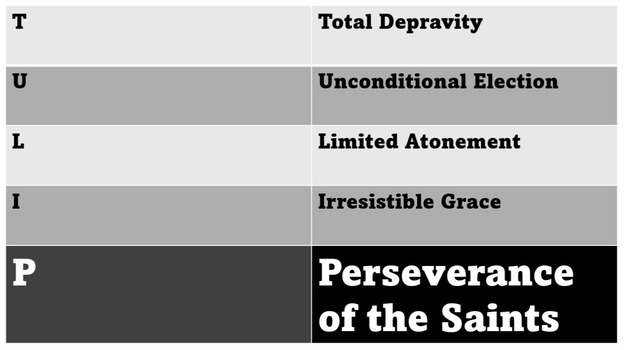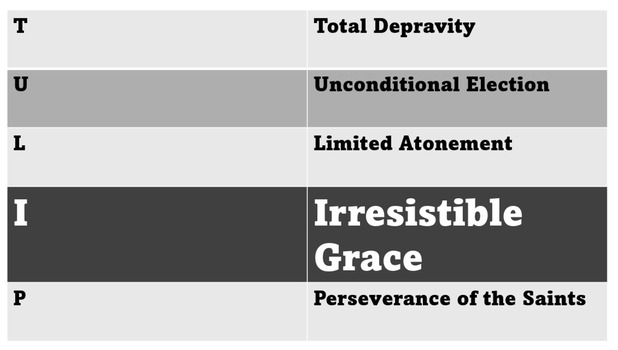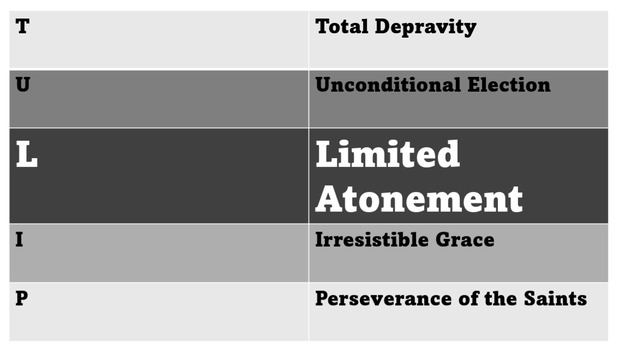What Does the Bible Really Mean By ‘The Flesh’?
8The phrase “the flesh” appears over 150 times in the New Testament, making it one of the most significant theological concepts in Scripture. Yet despite its frequency, many remain confused about what the term actually means. Does it refer to our physical bodies? Or our natural desires? Or something deeper?
When we hear the classic trio of spiritual enemies—”the world, the flesh, and the devil”—we recognise a profound truth about the battlegrounds of Christian life. While the world attacks from without and the devil tempts strategically, “the flesh” represents the enemy within—our own fallen nature that resists God’s will and righteousness.
DEFINITION OF THE TERM
In the New Testament, “the flesh” typically translates the Greek word sarx. While sarx can sometimes simply refer to physical tissue or the human body, its theological use runs much deeper. When Paul writes about it as an opposing force to the Spirit, he’s referring not to the physical body itself but to our sinful, fallen nature.
The Hebrew Old Testament uses basar in a similar way, though the fuller theological concept develops more explicitly in the New Testament (Romans 8:5-6).
This passage reveals that “the flesh” represents an entire mindset, value system, and orientation of life away from God and toward self.
THE TERM IN PAULINE THEOLOGY
Paul provides our most comprehensive treatment of the term in his letters, particularly Romans and Galatians. In these writings, the flesh emerges as the seat of sin and corruption in human nature.
Remember Paul’s lament in Romans 7:18? Here he’s not condemning the human body, but identifying the corruption that pervades our fallen nature.
This becomes even clearer in Galatians 5:19-21, where Paul lists the “works of the flesh”. Notice many of these sins aren’t bodily or physical at all—envy, jealousy, divisions, and idolatry are spiritual and relational corruptions. This confirms the term refers not merely to the body but to our entire fallen human nature apart from God’s grace.
WHY THE TERM IS RARELY POSITIVE IN SCRIPTURE
Scripture seldom speaks positively about “the flesh” because it represents humanity in rebellion against God. In Reformed theology, this connects directly to the doctrine of total depravity—not that we’re are as bad as we could possibly be, but that sin affects every aspect of our being (Ephesians 2:1-3).
The term represents what we are apart from Christ’s redeeming work—hostile to God, unable to please Him, bound for death.
CHRIST’S TOTAL VICTORY
The good news of the gospel is Christ has overcome the flesh. In a profound paradox, the eternal Word “became flesh” (John 1:14) without sin to redeem and transform our sinful nature (Romans 8:3-4).
On the cross, Jesus broke the power of the flesh, enabling believers to live by the Spirit. Colossians 2:11 describes salvation as a “putting off the body of the flesh,” a spiritual circumcision performed by Christ.
LIVING IN THE SPIRIT, NOT IN THE FLESH
For Christians, the ongoing challenge is to live according to our new identity in Christ rather than according to the flesh. Though the flesh has been decisively defeated, we still experience its pull and temptations (Romans 13:14).
Paul commands believers to “crucify the flesh with its passions and desires” (Galatians 5:24). This isn’t a call to harm our bodies but to put to death the sinful impulses of our fallen nature through the power of the Spirit.
The Christian life involves an ongoing battle between flesh and Spirit (Galatians 5:17). Victory comes not through willpower alone but through walking by the Spirit (Galatians 5:16).
COMMON MISUNDERSTANDINGS
Many Christians misinterpret “the flesh” as:
- Just the physical body: Scripture doesn’t teach that the material world or our bodies are inherently evil. In fact, God created the human body and called it “very good” (Genesis 1:31).
- Simply natural desires: Hunger, thirst, and sexuality are not sinful in themselves—they become corrupted when twisted away from God’s purposes.
- Only outward actions: The flesh includes our thoughts, attitudes, and values—not just external behaviours.
The biblical concept is more comprehensive: “the flesh” refers to our whole being as corrupted by sin and oriented toward self rather than God (1 John 2:16).
CONCLUSION
The biblical teaching on “the flesh” paints a sobering picture of our natural condition apart from grace. Yet it also highlights the magnificent redemption accomplished by Christ.
While we remain in these mortal bodies, the battle with the flesh continues. But we fight as those already victorious in Christ, empowered by His Spirit. We look forward to the day when we will be fully delivered from the presence of sin and corruption:
“And not only the creation, but we ourselves, who have the firstfruits of the Spirit, groan inwardly as we wait eagerly for adoption as sons, the redemption of our bodies.” (Romans 8:23)
RELATED FAQs
Does “the flesh” in the Bible always refer to sinful nature, or can it sometimes just mean the physical body? Sarx in Scripture has a semantic range that includes both the physical body and the sinful nature, depending on the context. According to Michael Horton, we must be careful not to adopt a neo-platonic view that denigrates physicality itself, as God created our bodies good. When Paul contrasts “flesh” with “Spirit,” he’s typically referring to our fallen condition rather than our physical existence.
- How do we reconcile Jesus “becoming flesh” (John 1:14) with the negative portrayal of the term elsewhere? Jesus took on genuine human nature but without sin—what Reformed scholar Herman Bavinck called “unfallen flesh in the midst of fallen conditions.” Christ’s incarnation shows physicality itself isn’t the problem; rather, our corrupted nature is. Through the incarnation, Jesus didn’t participate in our sinful nature but came “in the likeness of sinful flesh” (Romans 8:3) to redeem it.
- How does the Reformed view of “the flesh” differ from other theological traditions? Reformed theology, as articulated by scholars such as Sinclair Ferguson, emphasises the term as our entire fallen nature under the curse of sin—not merely sensual desires. Unlike some traditions that locate sin primarily in physical desires or social structures, the Reformed view sees it as encompassing our whole being in rebellion against God, which is why salvation must be entirely by grace. This view flows from the Reformed doctrine of total depravity—that sin affects every aspect of human nature.
Is there a relationship between “the flesh” and mental health struggles? Contemporary thinkers like David Powlison note that while some mental health issues stem directly from sinful choices, many are consequences of living in a fallen world affected by “the flesh.” We should avoid both extremes of dismissing all psychological struggles as spiritual failures or treating them as entirely disconnected from our spiritual condition. A holistic approach recognises that God’s redemptive work addresses both the spiritual and physical dimensions of our humanity.
- How should Christians think about “mortifying the flesh” in a culture that celebrates self-expression? Timothy Keller contrasted the cultural mandate of “be true to yourself” with the biblical call to “put to death what is earthly in you” (Colossians 3:5). True Christian freedom comes not through self-expression but through submission to Christ. Mortification isn’t about self-hatred but about aligning our desires with God’s purposes—the biblical form of authentic self-realisation.
- Does the concept of “the flesh” relate to systemic or societal sin? Richard Mouw argues that “the flesh” has both individual and corporate dimensions. Individual sinful tendencies can become embodied in social systems and cultural patterns that then shape individuals. The Reformed emphasis on total depravity helps us understand why social structures, not just individual hearts, need redemption—sin affects all human activities, including our collective endeavours.
How does technology impact our battle with “the flesh” today? Modern technology often amplifies the desires of the flesh through instant gratification, distraction, and the illusion of control. Technology itself is morally neutral, but our fallen nature readily harnesses it for self-glorification rather than God’s glory. Christians need wisdom to use technological tools in ways that foster spiritual formation rather than reinforcing the mindset of the flesh.
THE FLESH: OUR RELATED POSTS
- Mortifying the Deeds of the Flesh: What It Means & Why It Matters
- Why Can’t I Stop Sinning? The Christian’s Ongoing Struggle with Sin
- Dead to Sin, Alive in Christ: What Does the Bible Mean?
- Questions About The Cross: The Bible’s Answers
Editor's Pick

Haemoglobin Screams Design: A Miracle in Every Breath
Billions of molecular miracles occur inside our bodies each moment. Haemoglobin—the remarkable protein responsible for every breath we take—executes a [...]

Unsung Witnesses: How Minor Characters Validate Gospel Accounts
In the grand narrative of Christ’s life, death, and resurrection, we often focus on the prominent figures—Jesus Himself, the 12 [...]
Can God Condemn Homosexuality Even If Some Are Born Gay?
Few questions challenge modern Christians more deeply than reconciling traditional biblical teaching on homosexuality with emerging scientific theories about sexual [...]

Washing of Feet: Are We To Apply John 13:14 Literally?
In the quiet moments before His betrayal and crucifixion, Jesus knelt before His disciples and performed an act so countercultural [...]

The Paradox of Prayer: Why Ask When God Already Knows?
Ever caught yourself in the middle of prayer, wondering, “Why am I telling God things He already knows?” If God’s [...]

Inerrancy Vs Infallibility: Which Does Scripture Demand We Affirm?
When discussing the nature of Scripture, two terms often arise: inerrancy and infallibility. While they may both sound similar—even equally [...]

Why Does Jesus Cry, ‘My God My God’?
FROM OUR SERIES ON CHRIST’S SEVEN FINAL UTTERANCES FROM THE CROSS Of all the words Jesus spoke from the cross, [...]

Mass Hallucination: Does This Explain Resurrection Appearances?
The claim that Jesus rose from the dead is at the very heart of Christianity. Without it, as the Apostle [...]

The Easter Miracle: What John Saw at the Tomb that Sparked Faith
It's one of the most intriguing moments in the Gospel accounts of Jesus' resurrection. Two disciples, Peter and John, race [...]

Dating of the Gospels: The Case for Pre-70 AD Authorship
Few questions in biblical scholarship carry as much weight as the dating of the four Gospels. Were Matthew, Mark, Luke, [...]
SUPPORT US:
Feel the Holy Spirit's gentle nudge to partner with us?
Donate Online:
Account Name: TRUTHS TO DIE FOR FOUNDATION
Account Number: 10243565459
Bank IFSC: IDFB0043391
Bank Name: IDFC FIRST BANK







